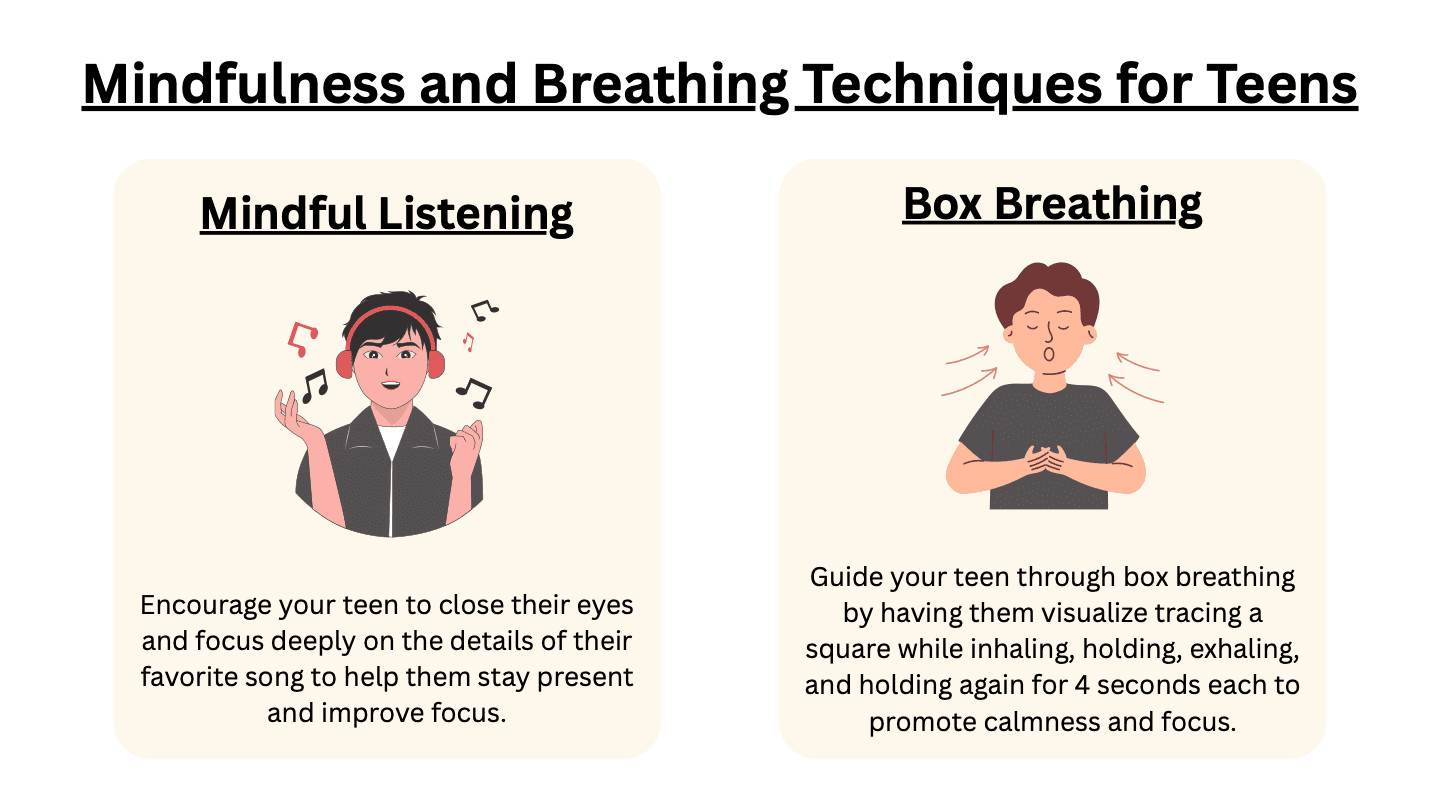Supporting Teens Through Anger: Effective Management Strategies
Teen anger can be intense and confusing, but it’s also a normal part of development. Learn effective anger management strategies for teens, signs they may need help, and how parents can support emotional regulation at home.


Once the teen years roll in, our kids are doing all kinds of things without us — driving themselves to school, picking out their own clothing, and navigating the dating world. They might appear to be mini versions of us, but they are not adults. Their brains, which play a significant role in emotional expression, are still developing. So, when they are overwhelmed, they may respond with anger and temper tantrums. As parents, this can be hard to navigate. Fortunately, there are some ways you can help with anger management for teens.
Key Takeaways
- Anger is a normal part of teen development. But teens may not know how to express their anger in the best way as their brains are still developing.
- Teens need their parents to provide them with support and guidance to help with anger management.
- Things like mindfulness and movement can help teens cope with anger. Parental boundaries are important too.
When a teen may need help with anger management
Does your teen lock themselves in their room and scream into their pillow? Maybe they even have raging outbursts. Some teens express anger inwardly — in the form of self-harm. These are all signs that your teen may need anger management for teens.
Common triggers for teen anger
Teen anger often results from a mix of things. Common triggers include family expectations/pressures, friend group drama, and pressure at school.
Normal teen emotions
Teens experience a range of emotions. Many of these feelings are a completely normal part of development.
- Anger: This is a normal emotion for teens (and adults). It can stem from feeling misunderstood, frustrated, or stressed.
- Anxiety: Teens often worry about fitting in with peers, school, and the future.
- Sadness: Moments of sadness are normal for teens. This might occur because of arguments with friends, school, and family issues.
- Loneliness: Many teens feel lonely even when surrounded by others.
- Love: Teens may experience their first love, and they also feel love for siblings, parents, and other family members.
These are just a few of the normal teen emotions.
Concerning behavior
You might want to chalk up volatile, moody behavior to normal teenage hormones. But, sometimes it's something more than that. If your teen's emotions seem to represent a rollercoaster, it could be a sign of something deeper. Here are some other signs of concerning teen behavior:
- Isolation
- Lying or bullying others
- Constant anger
- Severe sleep disruptions
- Rapid and intense mood swings
- Sudden decline in academic performance
- Self-harm or suicidal remarks or behaviors
- Being extremely quick to anger when they don't get their way
Evidence-based approaches to helping teens manage anger
There are plenty of ways for parents to help with anger management for teens. Here’s how you can help your teen get a better handle on their anger.
Mindfulness and breathing techniques for teens
There are many ways to integrate meditation practices into family routines. These practices can help the entire family reduce stress and become more aware of their feelings.
- Mindful Listening - Have your teen put on their favorite song. Tell them to close their eyes and focus on the instruments or vocals. Notice the beat, rhythm, sound — all the intricacies of the music. This encourages your teen to be present and focused.
- Box Breathing: To do this, tell your teen to imagine that they are tracing a neon square in the air with their breath. They should breathe in for 4 seconds while drawing the first side of the square and hold for 4 seconds while they draw the second side. Then, exhale for 4 while tracing downwards. Then hold for seconds again at the base. They should do this a couple of times.

Physical outlets for managing intense emotions
Exercise and movement can release stress and pressure. When your teen is angry, a run can feel great. Dancing alone in their room is another great way to turn frustration into something positive. There are so many ways for teens to be active—skateboarding, climbing a rock wall, or shooting hoops at the park. Even doing a few yoga poses can help shift their mood from being frustrated to calm.
Communication skills that reduce conflict
Allow your teen to step away when they are angry. Avoid saying things like “Don’t you dare walk away from me.” If they get agitated, allow them —and you — to take a break.
You should never curse or name-call. You should also avoid telling your teen to “calm down” in the middle of an outburst. Also, avoid threatening your teen with consequences (“calm down or I’ll send you to a wilderness camp!!”). These types of communication increase conflict.
When your teen expresses that they are angry, this should not be seen as disrespectful. In this situation, let them talk. Listen non-judgmentally as they express their feelings.
Creating a supportive environment for teens learning emotional regulation
Creating a supportive environment for your teens to learn emotional regulation can help with anger management for teens. This means providing support while they navigate confusing feelings. The key is to be consistent and present and guide them through their difficult emotions.
How families can model healthy anger management
Parents can model healthy anger management in many ways. When conflict arises, take a deep breath to respond. Tell your teen, “I’m upset. Let’s take a moment to cool down.” This teaches them that anger is an emotion that can be managed, rather than allowed to overflow. It’s showing them that it’s okay to take a moment and pause.
Setting appropriate boundaries without escalating situations
Setting boundaries with your teen will help them thrive. Boundary setting is all about being empathetic yet firm. Set boundaries with kindness and compassion. Stick to the limits even when they are met with resistance. Avoid power struggles. Above all, make sure your teen understands that your boundaries come from a place and caring. Your teen might roll their eyes and challenge you a bit, but deep down, they will feel more secure with boundaries to keep them safe.
When and how to seek professional help
A teen might plainly ask for help out loud. Or, they may show that they need it through risky choices, a sudden lack of interest in things they used to love, or suicidal thoughts. In these cases, it's time to call in some extra help.
Types of therapy effective for teens with anger challenges
Therapy is a safe space where teens can explore things that may be causing their anger and learn healthy ways to cope with it. Therapy for teens isn’t one-size-fits-all. There are many different types that have been found to be effective for teen anger.
- Cognitive Behavioral Therapy (CBT) is one of the most popular teen therapies. It helps teens identify the relationship between what they think, how they feel, and their behaviors. Therapists who use CBT help teens spot unhelpful thought patterns, challenge them, and replace them with more balanced, healthier ways of thinking.
- Family therapy brings everyone in the family together to work through issues that could be contributing to a teen’s anger. This type of therapy helps clear up communication, rebuild trust, and create healthier interactions for the whole family. It’s not just about helping the teen—it’s about healing the family dynamic.
- Dialectical Behavior Therapy, or DBT, is a subtype of CBT. It helps teach teens (and adults) how to handle emotions when things feel overwhelming. DBT has a strong focus on mindfulness and balance. It teaches practical skills for staying grounded, managing intense emotions, and making healthier choices.
Finding the right support resources for your family
When it comes to support, you have many options:
- School counselors (they can help your teen navigate emotional well-being at school)
- Therapists (both individual and family therapy are good options)
- Support groups (for teens or families)
- Crisis hotlines (like the 988 Lifeline)
- Community centers (such as the local YMCA)
Many of the above sources of support can also help with anger management for teens.
Conclusion
Supporting your teen through anger is a bit like navigating stormy weather. It can be turbulent and unpredictable. But with the right tools and support, your teen can learn to manage their anger. By setting boundaries and being consistent, you can help them build resilience.
Physical outlets, mindfulness, and positive communication can help your teen develop the emotional regulation skills they need to thrive and find balance.
Remember, your teen needs your support to manage their anger. They may even need professional help, and that is okay.
Take the First Step Towards Calm: Let Emora Health Help Your Teen
Anger can feel overwhelming for both teens and their families, but with the right support, it doesn’t have to control their lives. At Emora Health, our experienced therapists specialize in helping children and teens understand and manage their emotions, creating healthier pathways for communication and emotional growth.
Whether it’s through individual therapy, mindfulness techniques, or other strategies, we’re here to guide your teen toward better emotional regulation. If you're in Texas or Florida, Emora Health is ready to help your teen find balance and peace. Find a therapist today.





